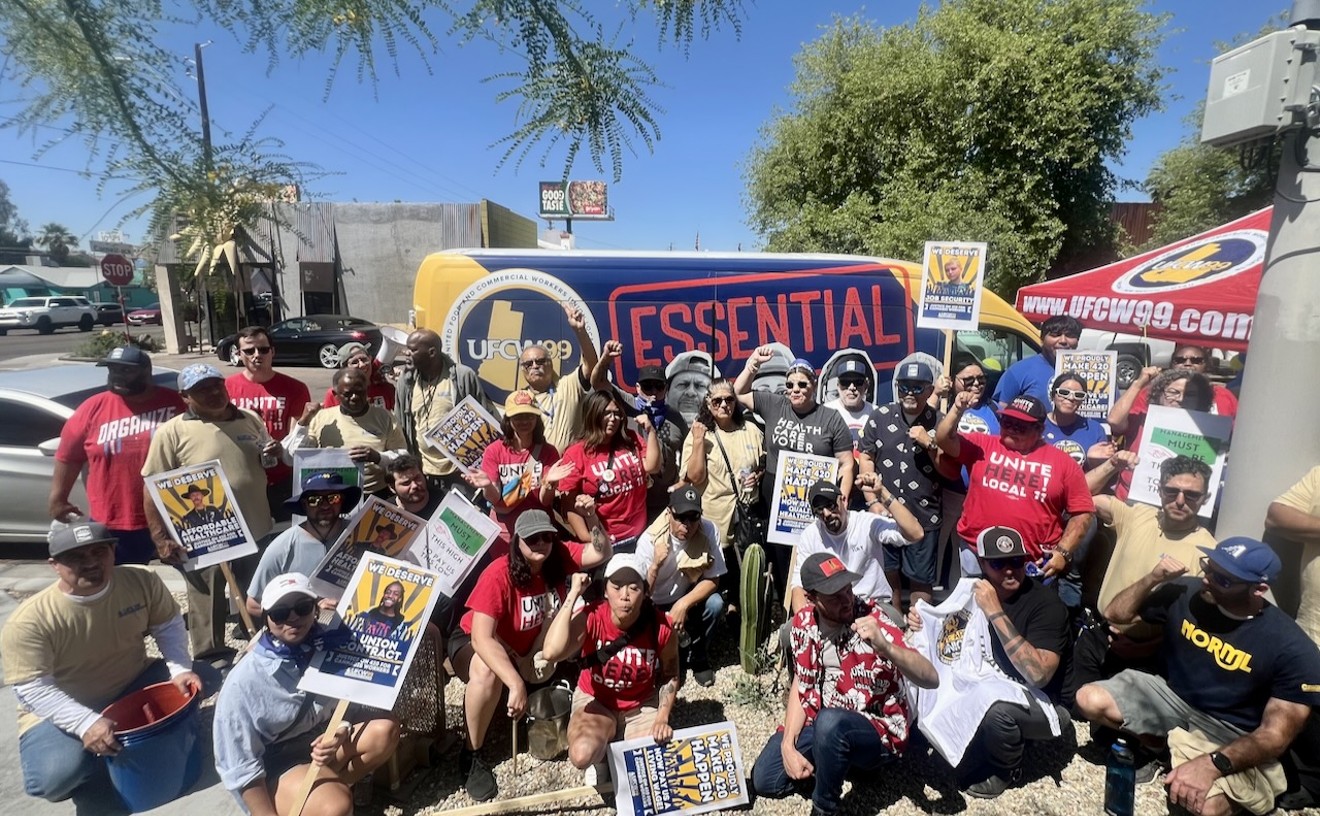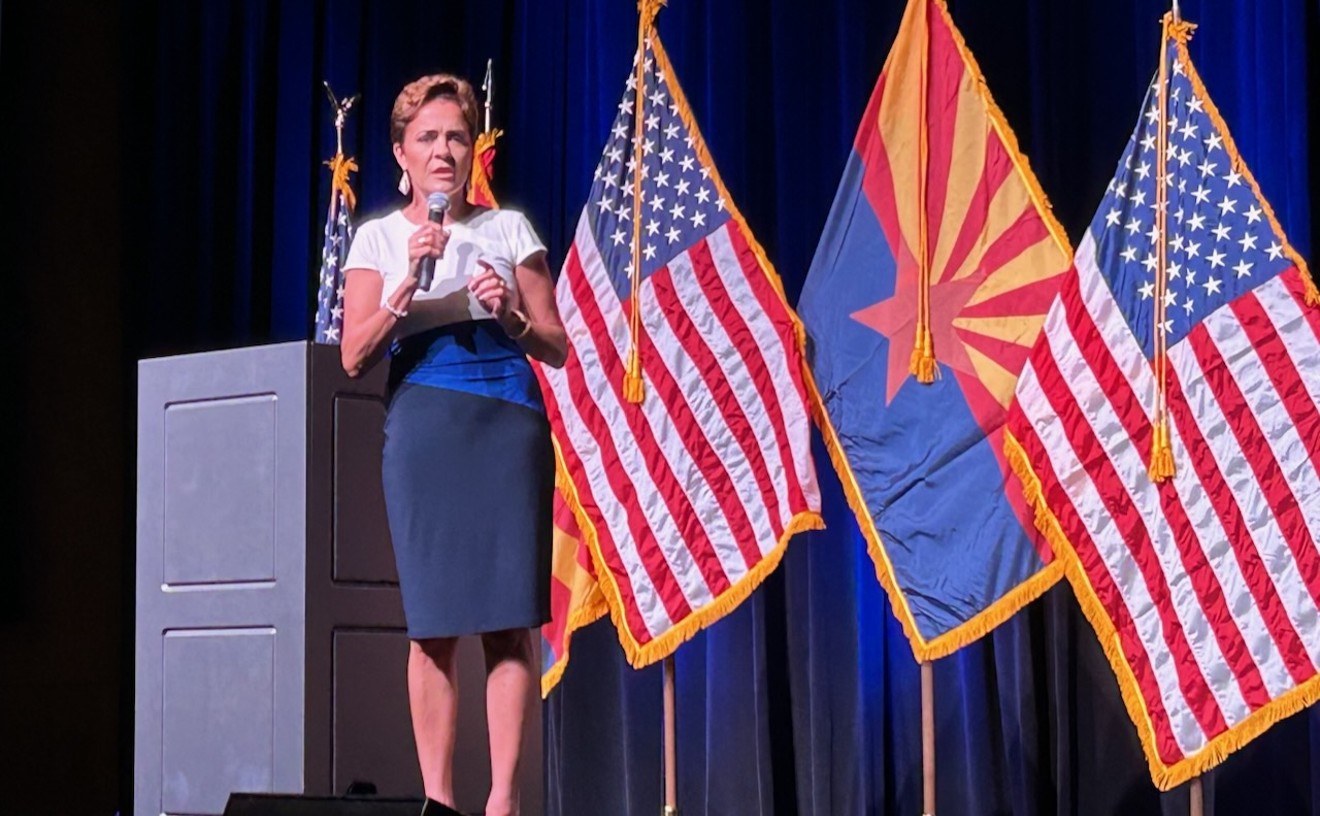As presidential candidate Donald Trump outlined his nativist immigration proposals during an August 2016 speech in Phoenix, Chávez tweeted: "Fact: I wouldn't be here if my father didn't cross the border. He's an engineer. I'm trying to get two degrees and graduate early."
Cronkite Executive Editor Kevin Dale emailed Chávez later that evening, telling her the tweet was "inappropriate." Dale implied Chávez's tweet violated ASU's social media guidelines and reminded her that such violations could "result in a lower grade and, in egregious cases, may lead to removal from the program."
"Though I think that is an amazing story, posting something like that is not appropriate for a reporter in a news organization," Dale wrote. "It might be different if you were an opinion writer or working for a media site that is pushing an agenda. But a news reporter in Washington working for an organization that is trying to fairly cover a variety of issues cannot post a pro-immigration tweet during an immigration speech by a presidential candidate."
That was three years ago.
Since then, Chávez has had a successful journalism career. She got a job covering politics at The Intercept, a left-leaning national news site. She has written illuminating stories on the tension between centrist and progressive Democrats. She co-wrote one of the first profiles of then-Congressional candidate Alexandria Ocasio-Cortez.
On Friday, inspired by a media colleague who lost work over her own outspokenness, Chávez resurfaced Dale's message to her 25,000 followers.
The reaction was decidedly in Chávez's favor. She racked up more than 2,700 retweets and 14,000 likes. Several reporters from both new media organizations (the Huffington Post, Vox, and Gizmodo) and legacy publications (the New York Times, Washington Post, and Los Angeles Times,) voiced their support.
The consensus on Twitter: that Chávez's tweet was an appropriate personal disclosure and that Dale's warning to her was an absurd over-correction rooted in an outdated notion of journalistic objectivity.
"I have almost always found collegiate journalism programs more willing to teach students how to publicly perform 'nonpartisanship' than actual journalistic values, like the pursuit of truth or accountability," wrote New York Times national politics reporter Astead Wesley.
"Not acknowledging that your parents immigrated verges on concealment, and Cronkite never would abide that," wrote Los Angeles Times reporter Geoffrey Mohan. "The additional irony: Your school administration has no clue how much it taught you with this."
Reporters don't speak for their publications, and the New York Times, Los Angeles Times and Washington Post all have social media guidelines designed to hold up their reputations for objectivity.
wait since we’re on the subject, remember the time my journalism school wanted to kick me out of their DC program for tweeting that my parents are immigrants while I was an immigration reporter pic.twitter.com/qgcXhpUGHX
— aída chávez (@aidachavez) July 26, 2019
Dale told Phoenix New Times in an email on Sunday, "I have no problems with professional journalists sharing autobiographical information on social media as long as it doesn’t hinder their ability to cover a story. Beyond that, I respectfully decline to comment."
Dale addressed the controversy on Saturday. In a series of tweets, the former Cronkite executive editor claimed that "no one was threatened with expulsion for merely tweeting that they were from immigrant grandparents." Dale, now executive editor of Colorado Public Radio, added: "@cronkitenews was trying to teach students how to live as journalists on social. The rules written out at that time were very strict in hopes of preparing them for their future newsrooms - most of which would have ethics codes involving social media."
Finally, Dale wrote, "I have watched the career of @aidachavez and many of her classmates take off and I couldn't be happier for her and all of them."
Chávez responded with a picture of a clown using a computer.
Reached via Twitter direct message on Saturday, Chávez told New Times that she was reminded of Dale's email after her friend, the writer Kim Kelly, announced on Twitter that NPR Music cut ties with her over her "activist stance." Kelly, a labor columnist and heavy metal critic, has written critically about far-right bands.
"Kim hates Nazis and stands up for workers, which I don’t consider activism," Chávez said. "It’s moral clarity."
Chávez said Kelly's experience "immediately" brought to mind her run-in with ASU's social media policy. Since Chávez has been working full-time in journalism, she felt secure enough to share the screenshots of Dale's email.
"The Cronkite School should stop trying to train an entire generation of brilliant young people to be bootlickers," Chávez said. "Fuck that, they owe me an apology.”
— aída chávez (@aidachavez) July 27, 2019











